Colorado-born national women's suffrage monument sets sights on National Mall
Traverse the hallowed expanses of the National Mall in Washington, D.C., and you'll find men. Lots of men.
Among them are presidents and patriots, Civil Rights leaders and soldiers — all immortalized in the Mall's monuments and memorials.
Women's history, however, is hard to find in its more than 1,000 acres. And therein lies the problem for Anna Laymon.
Laymon, the executive director of the National Women's Suffrage Monument Foundation, is at the center of a fight to install a Colorado-born women's suffrage monument in the heart of the National Mall — a tall order seeing as it would fall in the "Reserve," an area where new monuments are prohibited.
To date, only one exemption was made on the Reserve when Congress passed legislation authorizing the installation of the Global War on Terrorism Memorial in 2021.
Now, Laymon hopes lightning can strike twice.
National Suffrage Monument gets start in Northern Colorado
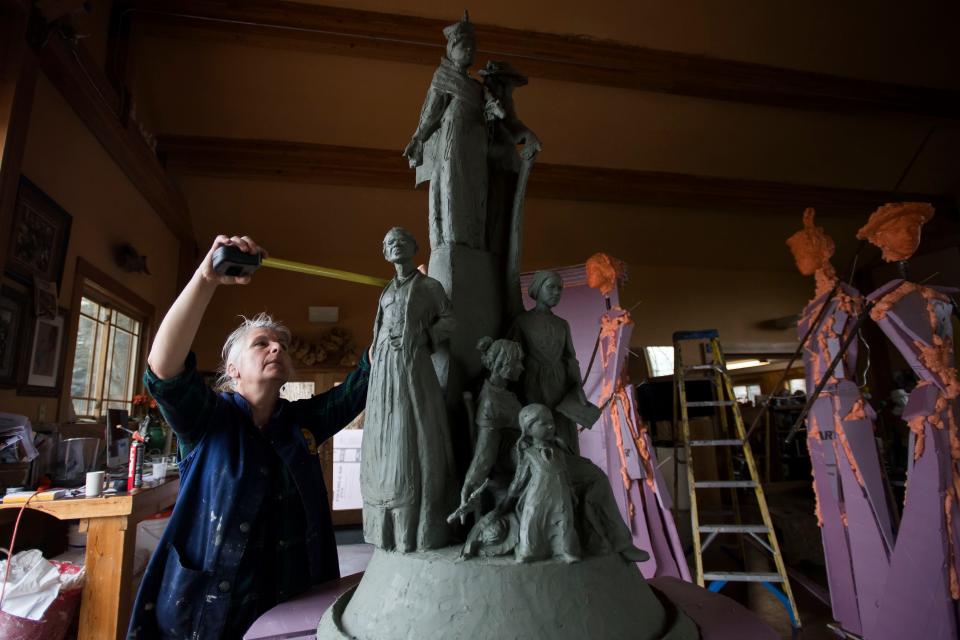
Long before the debate over its placement in Washington, D.C., the National Women's Suffrage Monument was born out of a Loveland sculptor's airy studio.
Jane DeDecker, whose life- and monumental-sized public sculptures have been installed across the United States, said she came up with the idea for the monument as the 100th anniversary of the 19th amendment's ratification neared in 2020.
Meet Jane DeDecker: The Colorado sculptor behind the national women’s suffrage monument
By 2019, the grassroots effort had turned into actual legislation, with Colorado Rep. Joe Neguse introducing a bill to establish the national monument. It was later signed into law by former President Donald Trump, who authorized it to be placed on federal land in Washington, D.C.
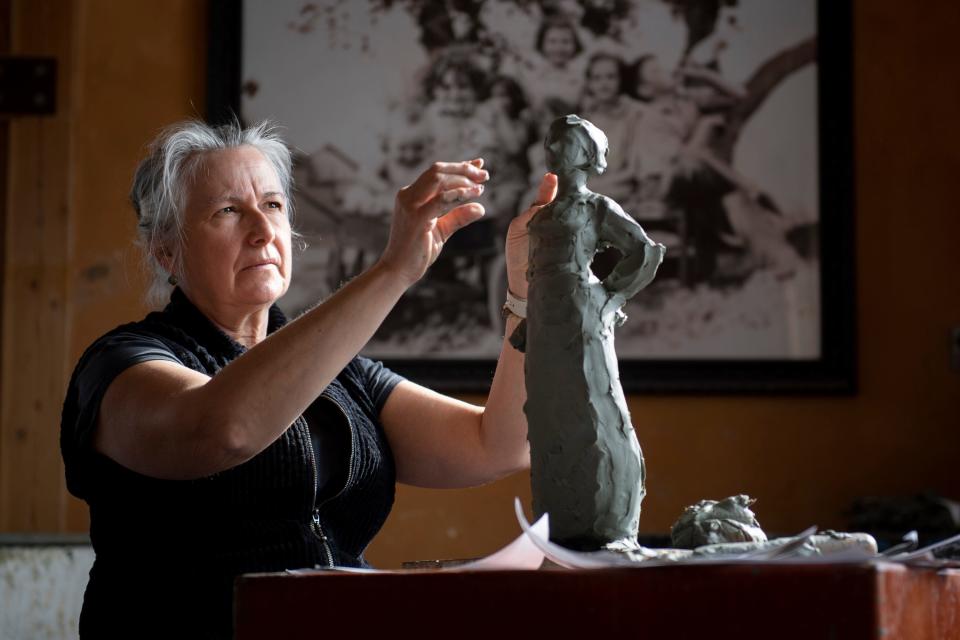
"When I first started, the project that the board handed me and directions from the board were that we were zoned for an area outside of the National Mall," Laymon said, referring to the National Women's Suffrage Monument Foundation board of directors.
The next step was to work with the National Park Service to identify a potential home for the sculpture. From there, the monument board would be able to put out a call for artists and sculptors to join DeDecker on its design team.
While visiting proposed sites for the monument, however, Laymon said she found herself standing at the National Park Service's best option — what she described as a traffic median sprinkled with street gates at a busy Washington, D.C., intersection.
"If this is what you think of this monument then we have very different understandings of what the great women in American history deserve," Laymon recalled thinking. "Because it’s not this."
Laymon quickly turned her sights to the National Mall, where she found 699 acres of unoccupied green space and only a handful of women represented in its Reserve — a central area of the Mall that runs from the Capitol to the Lincoln Memorial and from the White House to the Jefferson Memorial.
Women represented on the Reserve include nurses in the Vietnam Women's Monument and Eleanor Roosevelt, whose statue stands in the Mall's four-room Franklin Delano Roosevelt Monument.
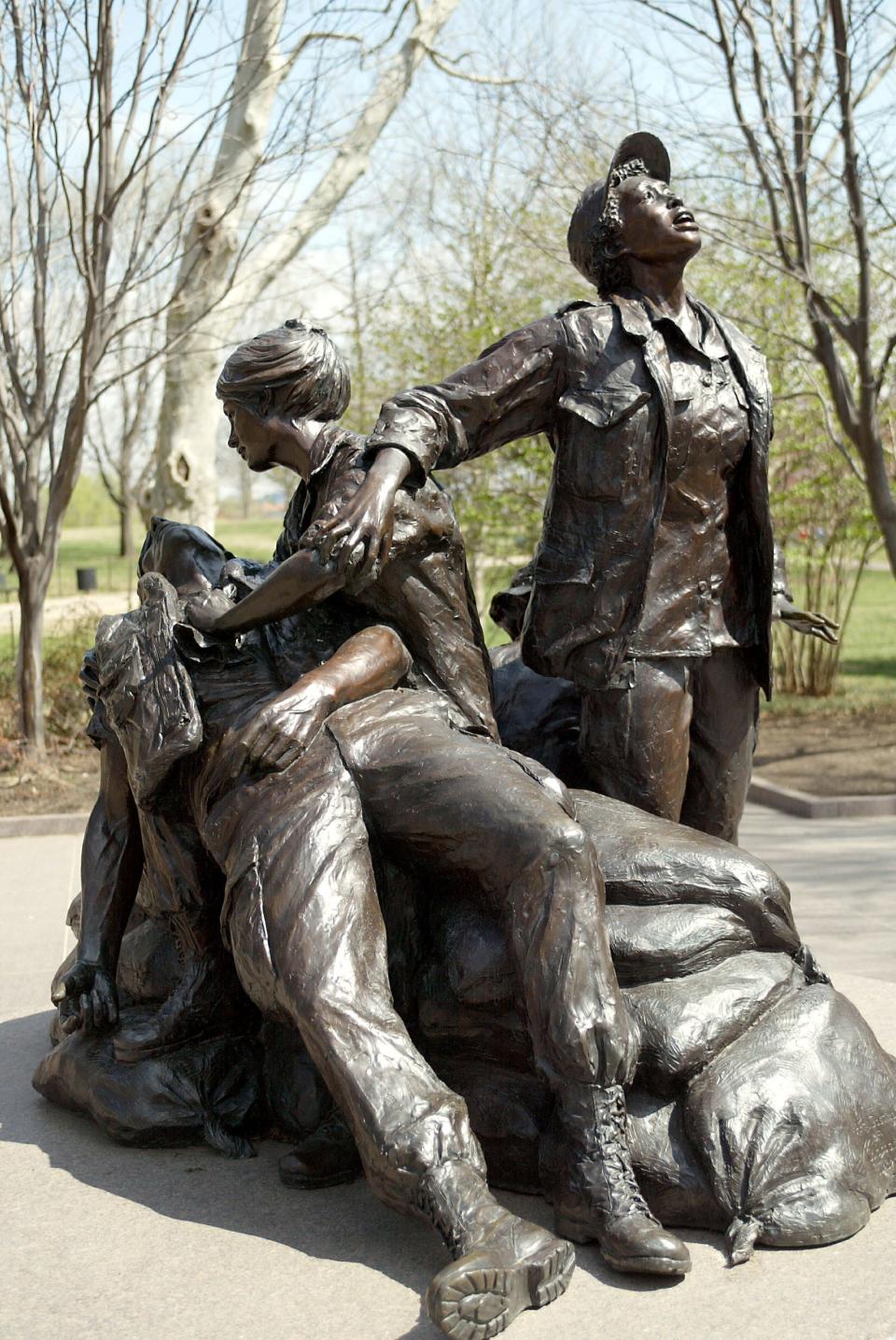
“That is not acceptable. That is not OK," Laymon said of the National Mall's lack of women-centric monuments. "But that is not an unsolvable problem.”
Laymon took her findings back to her foundation's board and asked if they would support a fight to get the monument placed on the National Mall. They said yes.
"Suddenly, the cause wasn’t about what crumbs can we take from the (National) Park Service ... the cause became much bigger than any of us meant it to be or expected it to be," Laymon said. "But if we don't do this now with this monument, women may never be represented on the National Mall."
How the West was won: Colorado, Wyoming women got voting rights decades ahead of nation. Here's why.
Laymon has suggested placing the monument in Constitution Gardens, a 50-acre stretch of the National Mall just east of its Vietnam War Memorial.
Dedicated in 1976 during the country's bicentennial, Constitution Gardens features a semicircle of 56 granite blocks etched with the names of the 56 men who signed the Declaration of Independence.
"It’s intended to be a living memorial dedicated to the American ideals enshrined in the Constitution. If you're looking for a place to put a monument to the 19th amendment, what better place?" Laymon asked. "... How fitting and beautiful would it be to draw a straight line between what those men achieved and what women achieved 150 or so years later? How incredible and poetic and symbolic would that be?”
National Park Service opposes monument's placement
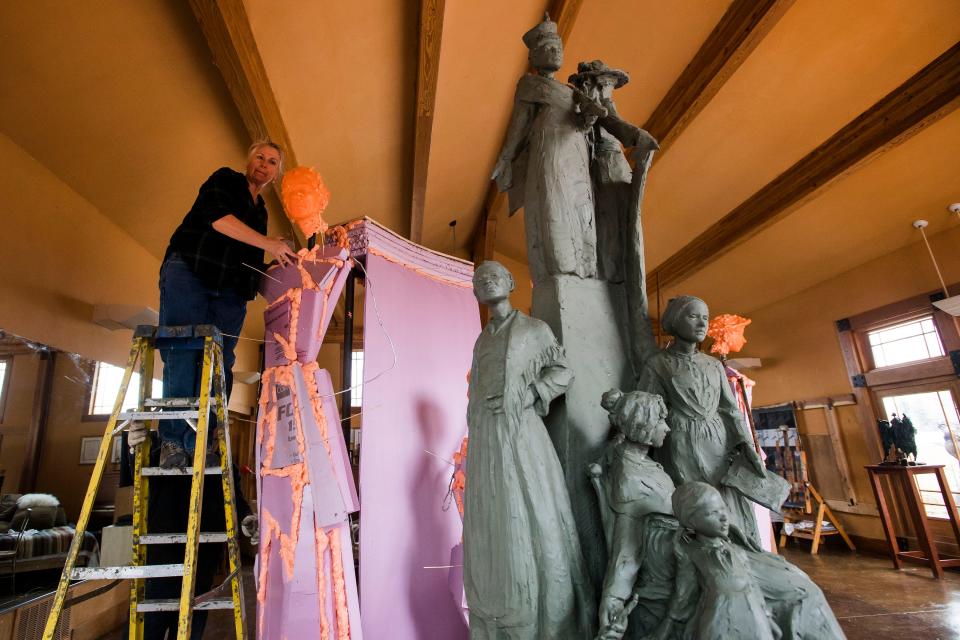
Bills authorizing the monument's installation on the National Mall were introduced starting late last year, with Neguse introducing the House bill in November and Sen. Tammy Baldwin introducing the Senate bill in March.
Both saw bipartisan support — "something that's basically nonexistent in Congress right now," Laymon said. As a Colorado-born effort, it has been backed by Colorado lawmakers. Sen. Michael Bennet is a co-sponsor of the senate bill and Sen. John Hickenlooper's office confirmed Tuesday that he would also be signing on as a co-sponsor.
The bills' largest opponent turned out to be the National Park Service, which testified against the monument's placement on the National Mall at House and Senate subcommittee hearings earlier this summer.
While the park service, "strongly supports honoring the American suffragists' long struggle to secure the 19th amendment," it does not support the sculpture's placement on the National Mall, according to Mike Reynolds, the National Park Service's deputy director for congressional and external relations.
In his testimony to the House's Federal Lands Subcommittee July 13, Reynolds cited the Commemorative Works Act, which was amended in 2003 to create the Reserve.
Since the amendment prohibits any new commemorative works or visitor centers within the Reserve, Reynolds said the park service does not support the women's suffrage monument House bill as currently drafted.
For those same reasons, the National Park Service did not support the placement of the Global War on Terrorism Memorial on the Reserve, which passed through Congress as a rare exception to the Commemorative Works Act in 2021.
"To be fair to the (National) Park Service ... they are required to say, 'This is the law, and we are a federal agency that respects the law,' " Laymon said. "They're stuck between a rock and a hard place."
The National Park service did not answer the Coloradoan's questions for this story by publication time, and instead referred questions to the agency's statements during subcommittee hearings for the Women's Suffrage Monument bills.
Now, the fate of the monument's location lies in the hands of the two chairmen and two ranking members of the Senate and House subcommittees that recently held hearings over the bills.
"We are poised, and the country is ready," Laymon said. "And right now, that decision is in the hands of four men.”
The clock ticks ahead of nation's 250th
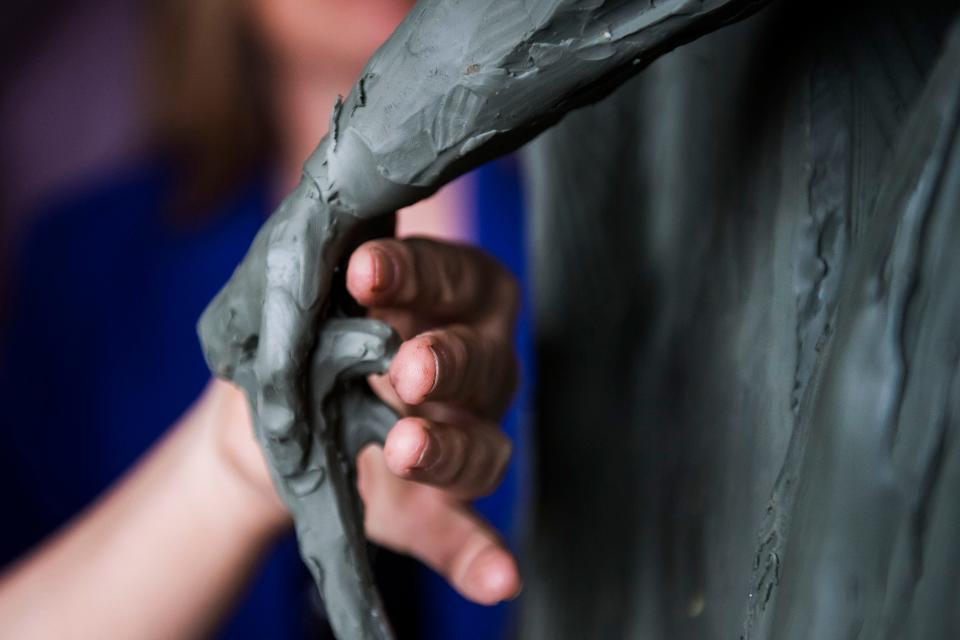
With requests for exceptions to the Commemorative Works Act coming through "all the time," Judy Scott Feldman said the July 13 House subcommittee hearing over the suffrage monument felt different.
"What I found interesting and hopeful was that both Democrats and Republicans seemed to be saying women’s suffrage is a crucial story we need to tell not elsewhere in D.C., but on the National Mall," said Feldman, board chair of the nonprofit National Mall Coalition. "That’s unusual. In the past, they would say, 'Go somewhere else.' "
The National Mall Coalition, which Feldman helped found in 2000, seeks to provide an organized voice for the public on National Mall matters. For years, that voice has been pushing for the expansion of the National Mall, which the coalition argues has more stories to tell.
To Feldman, the National Women's Suffrage Monument could be the impetus for such a change.
"The suffragist memorial — since people seem to be in support of the idea — could be the center of an idea around a thoughtful plan to expand the National Mall," Feldman said.
"This could be the stimulus for it, because people like the idea (of the monument)," she added, noting that the proposed suffrage monument has been recognized by historians and Congress as "an important, but missing chapter," on the Mall.
While using the women's suffrage monument to forward an expansion of the Mall is "a really compelling idea," it's currently "just an idea," Laymon said in an email to the Coloradoan.
Due to several government agencies and commissions sharing jurisdiction and authority over Washington, D.C.'s federal land, it would likely take decades to make that a reality, she said.
"I think it’s a great idea," Laymon added. "But we need women woven into the monument core of the National Mall now."
If the National Women's Suffrage Monument legislation gets out of committee, makes it to the House and Senate and does end up passing, Laymon estimated it could take seven years to get the monument funded, designed, sculpted and installed on the Reserve.
Because of that, Laymon said she would like to see a temporary women's suffrage exhibit go up in the National Mall by 2026 — just in time for it to be included in the Mall's semiquincentennial celebrations.
From USA Today: Bone up on your U.S. history facts ahead of our 250th anniversary
If things don't go as she hopes, though, Laymon said the monument foundation will continue its fight to get on the Mall.
"Legislation can always be reintroduced," she said, noting that it took 72 years from the start of the women's suffrage movement until the ratification of the 19th amendment.
"If the suffragists taught us anything, it's to persevere," Laymon added. "Where would we be if they had given up?"
This article originally appeared on Fort Collins Coloradoan: Colorado-born women's suffrage monument sets sights on National Mall

